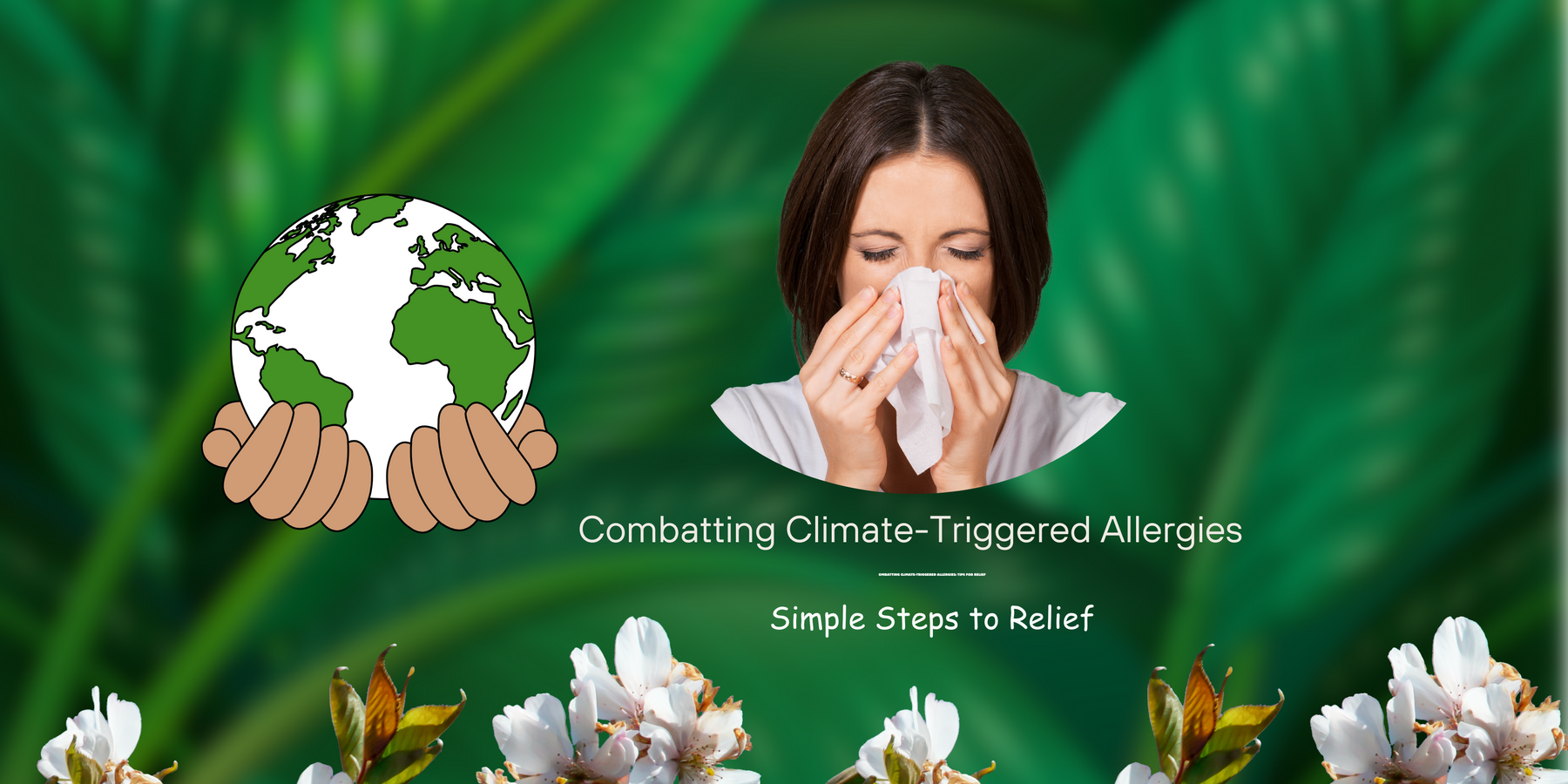Economic Times Best Healthcare Brand
Economic Times Best Healthcare Brand

As Google Doodle showcases breathtaking nature photographs in honor of Earth Day, the message to protect our planet resonates deeply. However, amidst the environmental challenges posed by climate change, there's a lesser-known impact: the exacerbation of allergy seasons, affecting countless lives across the world. Rising carbon dioxide levels fuel heightened pollen production, intensifying allergy symptoms and emphasizing the urgency of preventive measures.
Did you know climate change can exacerbate allergies in several ways? One key factor is the extended pollen seasons due to warmer temperatures, leading to increased pollen production and allergen exposure. Climate change also promotes the growth of allergenic plants in new areas. Finally, extreme weather events associated with climate change, such as storms and floods, can disperse allergens and mold spores, further aggravating allergy symptoms.
Pollen, dust mites, insects, and certain foods are common triggers for spring allergies. Heat waves and pollution exacerbate allergy symptoms by increasing pollen levels, particularly in urban areas with poor sanitation.
Recognizing allergic reactions, such as hives, skin rash, itching, stomach pain, and facial swelling, is crucial for timely intervention and symptom management. Extended exposure to allergens, combined with declining air quality, poses significant challenges, resulting in more frequent and severe symptoms, including asthma attacks.
Limit Pollen Exposure: Stay indoors during peak pollen times, especially early morning and late afternoon, and keep windows closed to minimize contact with allergens.
Utilize Allergy Medications: Over-the-counter antihistamines, decongestants, and nasal sprays can provide relief from allergy symptoms. Consult your healthcare provider for personalized recommendations.
Nasal Rinse: Incorporate nasal irrigation into your daily routine using saline solutions or a neti pot to flush out allergens from your nasal passages and alleviate congestion.
Explore Immunotherapy: Discuss allergy shots or sublingual tablets with your doctor to build tolerance to allergens and reduce allergic responses over time.
Implementing additional strategies within your home can further alleviate allergy symptoms:
Nebulizers administer medication directly to the airways, offering rapid relief from allergy-related respiratory symptoms like wheezing and shortness of breath. Although commonly utilized for conditions such as asthma and COPD, they can also effectively alleviate allergy symptoms.
Looking for the top brand of nebulizer machines? Dr Trust stands as one of the most reliable choices for ensuring optimal respiratory health. If you're experiencing cough, asthma, or any other respiratory issue, explore our selection of the best nebulizer machines here for swift relief.
A humidifier is an essential addition to your home, helping to regulate optimal humidity levels and deter allergens like dust mites and mold. It enhances air quality and provides relief from issues such as cough, irritated eyes, allergies, and sinus headaches. Consider investing in a Cool Mist Ultrasonic Humidifier for enhanced comfort and respiratory support. Humidifier serve as an effective tool for alleviating dryness in nasal passages and throat, which can worsen allergy symptoms.
Essential oils dispersed by diffusers, such as peppermint, eucalyptus, and lavender, possess natural antihistamine and anti-inflammatory properties, easing allergy symptoms like congestion and itching. Additionally, the pleasant aroma promotes relaxation, reducing stress which can exacerbate allergies. Choose the best aroma diffuser that works with essential oils and use them safely to avoid adverse reactions.
By incorporating these comprehensive strategies into your allergy management routine, you can effectively navigate spring allergies and embrace the season with renewed vitality and comfort.
Leave a comment